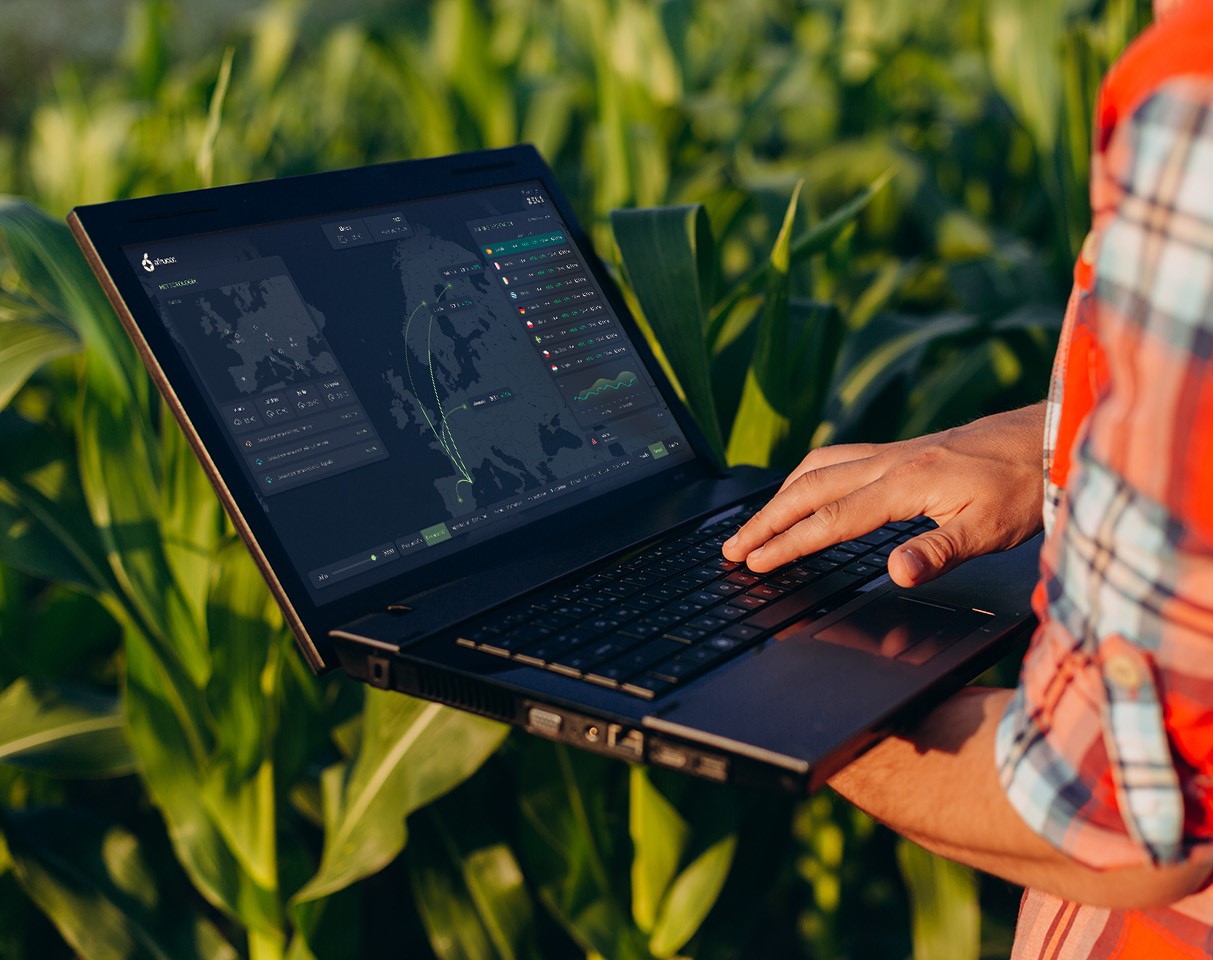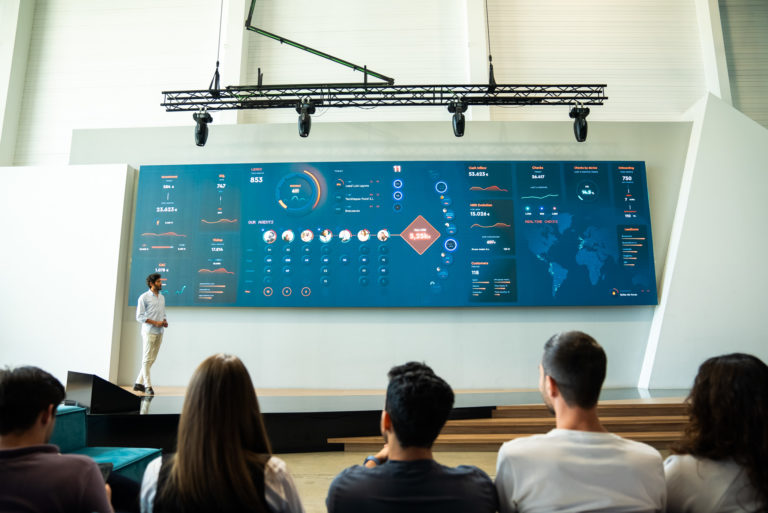Data in the Agri-food industry

Imagine a fully automated farm where drones equipped with cameras and IoT devices with sensors constantly monitor the crops. All these agri-food industry data can now be easily collected. Data on plant conditions, soil quality, real-time weather conditions, and AI algorithms predicting the irrigation and nutrient needs of each plant, optimizing production.
These are some of the opportunities and challenges posed by technological advancements, digitization, and innovation in the agri-food sector.
Digitization in agribusiness
Digitalization in the agri-food industry is much more than just a trend; it is a fundamental transformation that is revolutionizing the way we produce and consume food. When we talk about digitization, we refer to the adoption and application of digital technologies at all stages of the value chain, from production to distribution and marketing.
In this process, emerging technologies, such as the Internet of Things (IoT) and artificial intelligence (AI), are coming together to provide innovative and efficient solutions that are changing the industry landscape. From the incorporation of automated systems on farms to the massive collection of real-time data to the use of business dashboards, digitization is driving a new era of efficiency, productivity and sustainability in food production.
The need to adapt to new technologies
One of the salient points is the urgency for the Agri-Food Industry to adapt to new technologies to maintain its competitiveness. Digitalization and automation can improve the efficiency and quality of production processes, optimize the supply chain and provide valuable information for strategic decision making.
For example, the implementation of automated monitoring and control systems in agricultural production allows more efficient use of resources, such as water and fertilizers, while ensuring higher quality food production.
Data, data and more data
How much data is generated every day, and who has the time to interpret it and draw good conclusions? Data in the agri-food industry, as in all other sectors, is generated all the time and from numerous sources. Everyone knows that analyzing and visualizing data through dashboards is key: it helps us to optimize processes, identify patterns and trends, predict demand, anticipate potential problems….
In addition, emerging trends such as AI help us to make predictive analytics, avoiding periods of shortage or overstock and optimize operating costs. And hence the saying, “sow data, reap decisions“.
Where does what I am eating come from?
Consumers are becoming increasingly aware and interested in knowing the origin and quality of the food they eat. Through IoT devices, we can implement efficient and transparent traceability systems. The importance of adopting technological solutions that allow us to trace and verify the entire supply chain, from the field to the point of sale, providing greater confidence to consumers, will be one of the keys to the sector…
What if our customers could visit plantations from the comfort of their homes or offices? With virtual reality, we could generate immersive experiences visiting farms, touring fields, knowing first-hand where the food we eat every day comes from.
Stronger together
In the agri-food sector, collaboration and joint work between the different players in the value chain are essential to effectively implement technological solutions and achieve a more prosperous and sustainable future. Digitization and innovation require synergies between farmers, food processors, distributors and retailers to address common challenges and seize the opportunities presented by technology.
Building a strong and effective collaborative network enables the sharing of knowledge, experience and best practices. Farmers can benefit from the expertise of food processors in terms of demand and quality requirements. In turn, processors can rely on real-time information provided by farmers to plan their operations more efficiently. Distributors and retailers also play a key role in connecting producers with end consumers and providing valuable information on market preferences.
The potential of artificial intelligence
Of course! AI will also revolutionize the industry by improving the accuracy and efficiency of agricultural processes: early detection of crop diseases, intelligent irrigation management and production optimization.
In addition, the incorporation of digital technologies in food marketing and distribution can improve the consumer experience. The use of online platforms, mobile apps and delivery services based on intelligent algorithms allows for closer and more personalized interaction with customers, offering recommendations and promotions tailored to their individual preferences, all thanks to data in the agri-food industry.
By embracing these opportunities, the Agri-Food Industry improves efficiency, sustainability and food quality, ensuring a prosperous future for all stakeholders.



